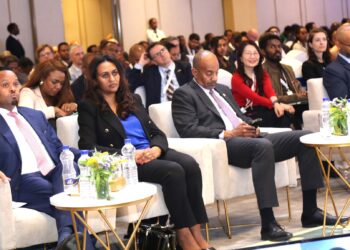Ethiopia’s bold economic reforms have won another vote of confidence from the International Monetary Fund (IMF), which on July 2, 2025, approved a fresh disbursement of US$262.3 million (SDR 191.7 million). This decision comes as the IMF Executive Board completed its third review of Ethiopia’s 48-month Extended Credit Facility (ECF) arrangement and concluded the country’s 2025 Article IV Consultation.
The approval raises total disbursements under the ECF to US$1.87 billion, part of a US$3.4 billion package approved in July 2024. The program supports Ethiopia’s ambitious Homegrown Economic Reform Agenda (HGER) aimed at addressing longstanding macroeconomic imbalances and laying the groundwork for private sector-led growth.
A Reform Story That’s Delivering Results
Over the past year, Ethiopia has shown tangible progress:
- Inflation has dropped faster than expected.
- Gold-driven exports have lifted foreign exchange (FX) reserves beyond targets.
- There’s been no new borrowing from the central bank nor accumulation of external arrears.
- Key reforms are increasing FX availability, improving market transparency, and modernizing monetary policy.
Nigel Clarke, IMF Deputy Managing Director, praised the government’s achievements:
“Growth has been resilient, inflation is falling, and foreign exchange reforms are making the market more efficient. But maintaining momentum is key.”
What’s Working — and What’s Next
1. FX Market Reform: Recent steps to remove restrictions and lower costs for market participants are helping the FX market function more effectively. The IMF urges continued efforts to remove remaining controls and maintain competitiveness.
2. Revenue and Spending: Domestic revenue mobilization is improving thanks to tax reforms and reduced fuel subsidies. But with low tax-to-GDP levels and shrinking donor aid, the IMF calls for urgency in implementing Ethiopia’s Medium-Term Revenue Strategy.
3. Debt Sustainability: The IMF welcomed Ethiopia’s recent Agreement in Principle with its Official Creditor Committee (OCC) under the G20 Common Framework. Discussions with external commercial creditors are also progressing. The program requires Ethiopia to avoid new non-concessional borrowing—with the exception of the Koysha hydropower project.
4. National Bank of Ethiopia (NBE): The NBE has made key strides to modernize its role. But to boost autonomy, the IMF recommends filling vacant board seats and strengthening its financial position. It also backs a shift toward using the NBE policy rate as a clear signal for monetary decisions.
5. Financial Sector: Efforts to reduce financial repression and improve bank oversight are showing promise. The IMF encourages monitoring banks’ foreign currency exposures and credit growth, to avoid future risks.
What Lies Ahead?
While Ethiopia’s reform efforts are drawing international support, challenges remain. Security concerns, climate shocks, and a decline in foreign aid continue to pose risks. To keep the reform engine running, the IMF emphasizes:
- Societal support and inclusive dialogue to sustain policy momentum.
- Improved transparency and governance, particularly in State-Owned Enterprises (SOEs).
- Enhancing the AML/CFT framework to strengthen investor confidence.
- Better economic statistics and data quality for sound policymaking.























